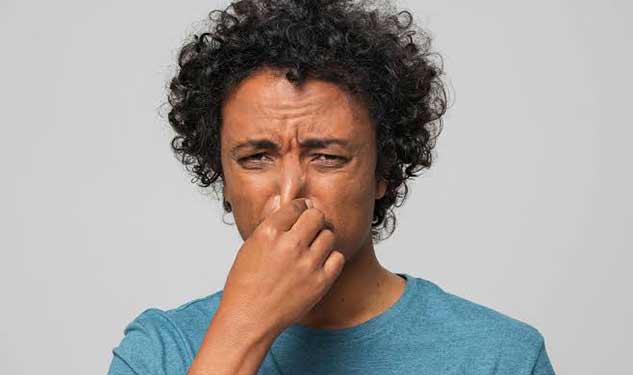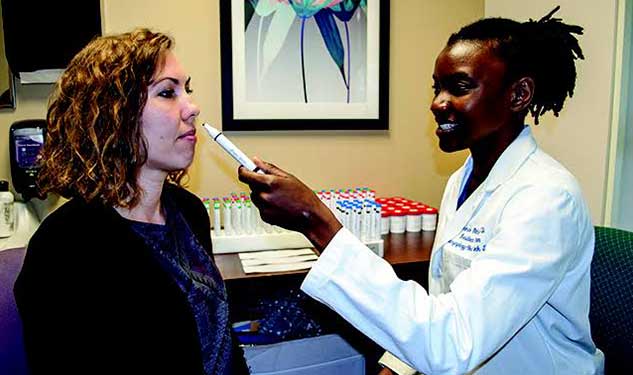
Losing the sense of taste and smell is one of the most common symptoms of COVID-19. But, people not only reported smell dysfunction but while recovering from COVID-19, they might also experience the smell of rotting meat or a foul odor. Normal odors might even suddenly have rotten, metallic and other bad smells. This symptom of Coronavirus infection was reported mostly during the first wave.
Table of Content:-
Such patients describe a condition called parosmia where foul smells become distorted. According to a study in 2021, it was found that almost half of the participants in the survey who had parosmia and a confirmed report of COVID-19 recovered the sense of smell in around three months. Onlymyhealth editorial team spoke to Dr. Ashutosh Shukla, Senior Director - Internal Medicine & Medical Advisor, Max Hospital, Gurgaon, to know more about parosmia.
Parosmia and Covid-19

The cause behind COVID-19 leading to parosmia is still unknown. Although, it is believed most of the people who experience this symptom also have a loss of taste and smell when they were sick. The duration of parosmia is also unknown. Another study suggested that the condition can last up to a duration of six months, but the average duration is usually three months.
COVID-19 can have an impact on the brain. It can damage the supporting cells for nerves, and thereby interrupts the functioning of nervous system. This is the reason why some patients after COVID-19 infection experience fatigue, brain fog, etc. When the brain damage occurs in parts of the brain that are important for smell, it leads to an absence of the sense of smell.
Also read: COVID-19 Symptoms: How Is Loss Of Smell And Taste Different From Common Cold?
Other causes of parosmia
Parosmia can also be caused by several things such as respiratory infections, seizures and brain tumors. If the loss of smell and taste was one of the acute Covid symptoms, you might be at a higher risk of parosmia. Apart from Covid-19, the other causes of parosmia are:
- Upper respiratory tract infections
- Head trauma
- Sinus issues
- Exposure to toxins
- Neurological conditions such as epilepsy or Parkinson’s disease
Ways to recover from Parosmia

While there is no specific course of treatment for COVID-19 related parosmia, some experts advice to go for smell therapy. Smell disorders such as parosmia and anosmia can majorly affect a patients’ quality of life. According to Dr. Ashutosh, here are some useful ways to recover from parosmia:
1. Smell training
Smell traning is mostly done by picking three to four different scents and breathing them in deeply for around 5-10 minutes twice a day. Strong smells such as cloves, citrus, coffee, and lavender are generally recommended. People are allowed to change the chosen scents every week. More studies are required to know if this therapy is actually helpful.
Also read: Is Loss of Smell A Sign of COVID-19 Recovery? Find Out Here
2. Avoid triggers
Avoiding offending smell triggers can also be an effective way to recover from this condition. However, doctors believe that in most of the cases, a normal sense of smell will restore back in time. Certain type of foods that can trigger parosmia include chicken, meat, onions, eggs, garlic and rice.
3. Lifestyle changes
Making small lifestyle moderations can also help in coping up with parosmia. Individuals have to avoid some scents that can trigger it and also avoid eating certain food items. Try to eat blander foods, such as oatmeal or steamed vegetables, which might have a lesser chance of triggering parosmia. Consume foods that are cold or at room temperature, as heat can make scents more intense.
Also watch this video
How we keep this article up to date:
We work with experts and keep a close eye on the latest in health and wellness. Whenever there is a new research or helpful information, we update our articles with accurate and useful advice.
Current Version